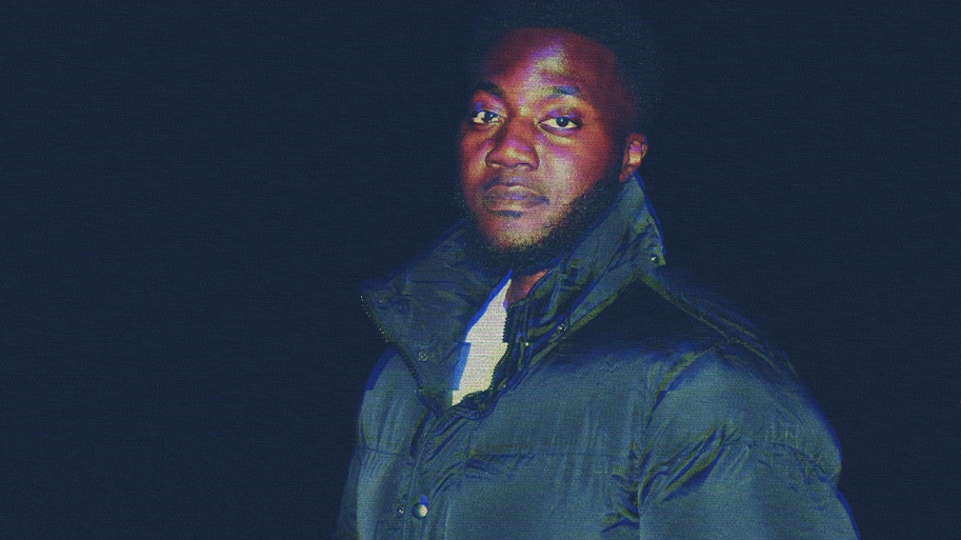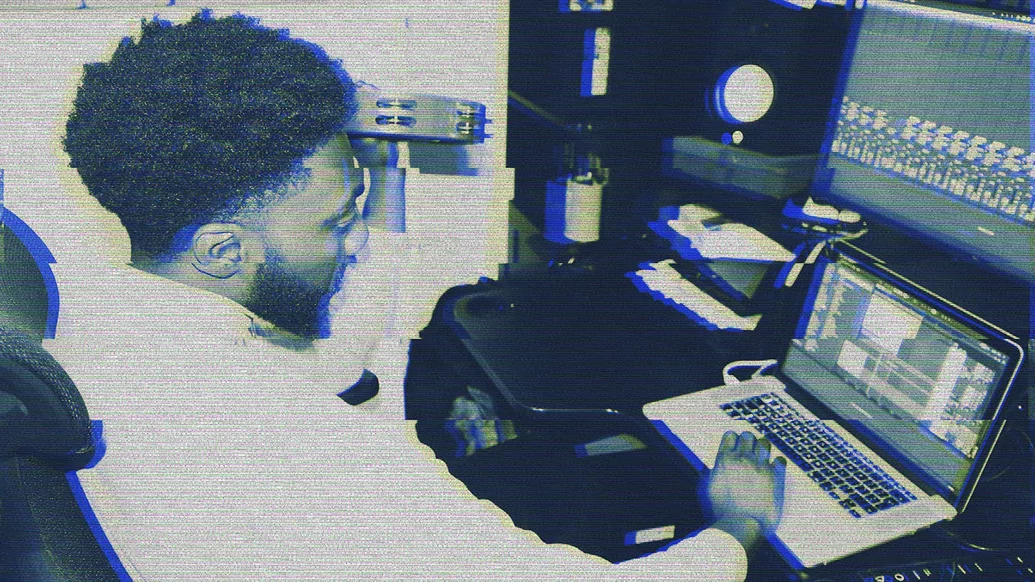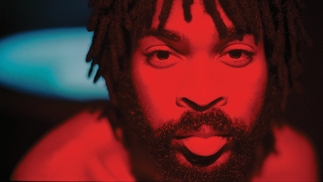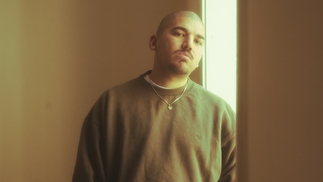Recognise: Hagan

A fusionist known for intense bass and intricate drumplay, DJ and producer Hagan has built a name for himself by blending the sounds of UK funky and garage with those connected to his Ghanaian heritage, from hiplife to gospel. He tells Tice Cin about his early inspirations and lifelong obsession with percussion, which he captures perfectly in his Recognise mix
Hagan started out producing music intended for “a basement club where the lights are out, you go in and let the bass hit your chest”. From early tracks like ‘Foot Stomper’ through to his remix of Afriquoi’s ‘Acid Attack’, there is a treacly, percussive core in his music that is distinctly Hagan. From this, the South Londoner experiments and pushes himself as an artist, with projects such as his 2020 EP ‘Waves’ inspired by the ballroom scene and Jersey club. Out on Mr Mitch’s Gobstopper Records, the EP started with a request from Mitch for songs to play on his radio show. Hagan felt that the ethics of the label — empowering Black producers and musicians — made it all the more important for him to put something out with Gobstopper.
More recently, Hagan’s music has been shaped by not having a club or crowd reaction. His tracks have become softer and the bpm has slowed from his standard 126/130. “It’s not everyday ‘let the bass hit your chest’,” he says. “I want to let people hear the soundscapes and sound design, but broaden my toolset to work with more artists, and travel with them musically.”
He’s set to release an album this year. It will definitely have the Afro-bass depth that characterises his sound, he says, while moving between moods of celebration and contemplation: a concept album through instrumentation, championing African dance music. Raised in Croydon and Mitcham, Hagan grew up in a house that played palm wine music, highlife, hiplife and gospel music; listening to the likes of Ebo Taylor, Gyedu-Blay Ambolley, Pat Thomas and K. Frimpong, to name a few.
Over years spent going to hall parties and get-togethers, he started to hone in on certain bass riffs and percussive trills that brought the best reactions on the dancefloors of London’s Ghanaian community. At the same time, he absorbed the sounds outside of his house, such as garage, UK funky, grime and jazz. He played percussion for his secondary school band, music GCSE and church group, and at school, his agemates would get him to play beats on top of bins.
“Instead of playing a typical grime beat on the bin, I would give the beat a little more flair and add African rhythms to it, so that made it more jumpy,” he recalls. “Those were some of the best reactions I’ve had to music, people would be going crazy for those beats and just be spitting.” When he’d get home, he’d record Kiss 100 garage sets onto his cassette player — “It was confusing, but it was a nice piece of confusion”.
In his teens, the Music Maker DAW taught him how to arrange and manipulate samples, and after building up confidence and familiarity on that, he switched over to FL Studio after pleading with his mum to purchase it as a birthday gift. His artist name, Hagan, is his mum’s name. He feels that anything that happens from his music is due to her support, and he wants to celebrate her name.

During university, it became apparent to Hagan that the UK was starting to formalise a UK Afro sound. He also noticed that the home-grown club culture required a lot of tracks to have a weighty low-end: “We love bass!” he says. “This pushed me to work on making sure my tracks could compete within that spectrum, while adding African-inspired grooves and dark textures.” He achieves some of this through software like Massive, SoundToys’ Decapitator to give some saturation, and CamelPhat for distortion.
He talks about the importance of learning from other producers: “One thing that I’m big on is perfecting mixdowns and making use of space within a mix. I often ask producer friends what steps they have taken to give their mix the character and shape that it has. It isn’t necessarily about it being ‘clean’ for me — it’s the thought process behind making the bass sound a particular way, or how they were able to give their drums that punch or crunch. On other occasions, I may ask what music they’re listening to so that I can expand my muses and share some music or YouTube clips I’m watching as a source of inspiration.” Ghanaian producers inform his work a lot. “Appietus and Jay Q produced a lot of my favourite hiplife tracks back in the day. I also draw inspiration from Ghanaian producers who are pushing boundaries and fusing sounds, like Juls, Gaffaci, KG, Blaq Pages, Kayso and C-Tea Beat.”
For the album, he’s enjoying working with features, including a Ghanaian rapper on a track celebrating the country. It’s important to Hagan to work with Ghanaian artists, especially since “it’s hard to connect the artists with producers like myself, KG or Blaq Pages, who are doing things that are less conventional. Our music blends influences, it’s not only Azonto sounds or traditional Ghanaian sounds; because we are of the diaspora, we have influences from both where we were raised and our heritage, which gives us a spin on our sound.”
Texture is a key factor for Hagan. He shows us his djembe that he’s been playing at church since he was young. He makes loops from it, covering his hands on different areas of the skin to get varying pitches and tones. Elsewhere on the album, he’s laid down shakers and random household items — ”glass bottles, coins, pots” — harking back to when he was little and would play on anything. Sound memories imbue his style, especially the upbeat rhythms of praise music from church. He wants to highlight this by including instruments such as the dondo and the fontomfrom.
He says he’s struck by the way that producers like Lil Silva and Juls capture an authentic sound by mixing electronic tones with live instrumentation, and he wants to do that in his own style — “to connect with people, not only in the club, but anywhere, in the bedroom, in the car, as they go to work... music brings moods that don’t just belong in the club”. He’s already had sessions with musicians ranging from guitarists to saxophonists.
Hagan’s drum kits sample from session musicians that he’s met over the years and asked to play — from agogo bells to bongos. He’s also built a collection of packs from some of his favourite hip-hop producers, like Timbaland and J Dilla. From these, he manipulates his samples, and has built a sample bank that is specific to the Hagan sound.
A large thread of Hagan’s work is in archiving, even making documentaries like Yenkyi Taxi with Crudo Volta. He wants his work and music to help people to connect with Ghanaian musical heritage. He also sees his work as a personal archive.
“I’m trying to look back and reflect on my life,” he says, “tracing back to the Ghanaian artists that I used to listen to while I was DJing with my uncle, when I was young to now. How did my South London and Ghanaian roots come to form my musical ability at this point?” This reflective ethos creates a sound that is meandering and evocative; bubbling with the kind of inquisitive energy you’d find in the queue for one of Hagan’s sets, and presented either like the soft thrum of bass pulsing through walls to the street, or hitting you right in the chest as you arrive in the room.
Listen to Hagan's Recognise mix below.
Tracklist:
Hagan & Mojvki 'NoLoveLost'
MRTAFFA 'Safari'
Karen Nyame KG 'Koko feat. Mista Silva'
Sango 'Kalimba Funk'
Larizzle 'En Bongo'
Juls & Sango 'Angele Ni Fie'
Tribal Brothers & DJ Polo 'The Problem'
Saiyon 'Getting High (Hagan Remix)'
Hagan 'Untitled'
Mak10 & Scratchclart 'PromiseU'
Omagoqa 'Gqom 808'
Hagan 'TalkingDrum'
GINA JEANZ 'Amagroove'
Hagan 'On Sight'
Karen Nyame KG 'Afrique'
SHE Spells Doom 'Drums of Affliction'
Sango ft. Hagan 'EspíritoSanto
Hagan 'Ghana Step VIP'
Scratcha ft. CitizenBoy 'Ammo VIP'
Karen Nyame KG 'Sensei(VIP)'
Citizen Boy 'Baby Pluto'
MXSHIMO & Hagan 'Untitled'
Gafacci 'Wabisabi 侘寂'
Hagan 'Waves'
LR Groove 'Contortion'
Hagan 'Ultra'
Hagan 'Right Here'






